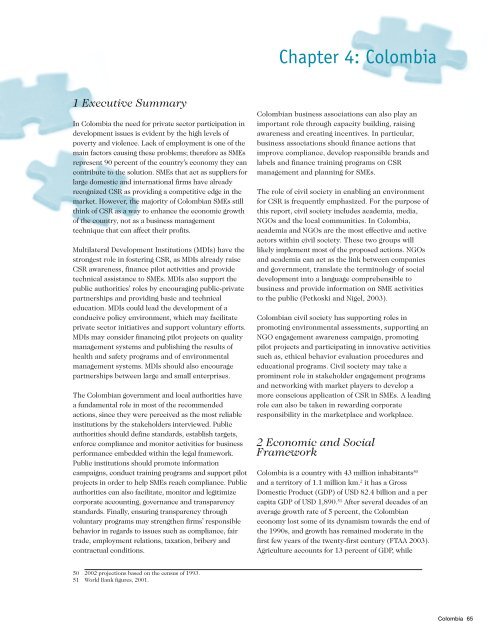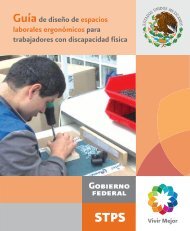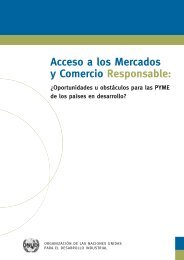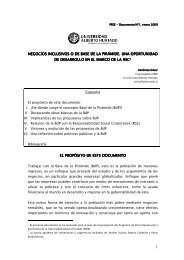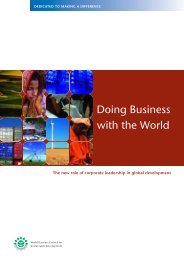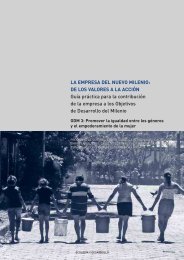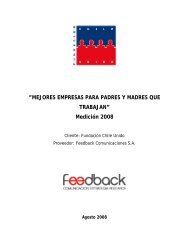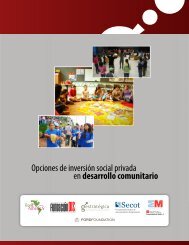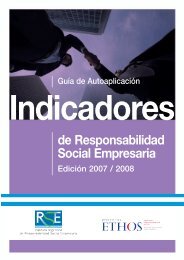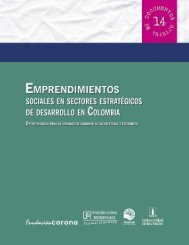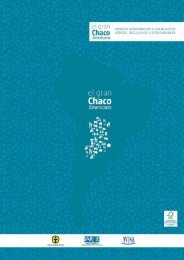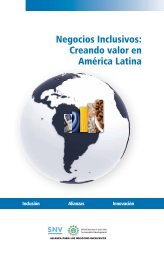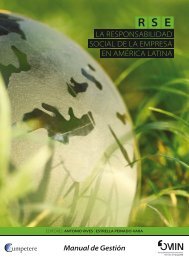Recommended actions to foster the adoption of Corporate Social ...
Recommended actions to foster the adoption of Corporate Social ...
Recommended actions to foster the adoption of Corporate Social ...
Create successful ePaper yourself
Turn your PDF publications into a flip-book with our unique Google optimized e-Paper software.
Chapter 4: Colombia1 Executive SummaryIn Colombia <strong>the</strong> need for private sec<strong>to</strong>r participation indevelopment issues is evident by <strong>the</strong> high levels <strong>of</strong>poverty and violence. Lack <strong>of</strong> employment is one <strong>of</strong> <strong>the</strong>main fac<strong>to</strong>rs causing <strong>the</strong>se problems; <strong>the</strong>refore as SMEsrepresent 90 percent <strong>of</strong> <strong>the</strong> country’s economy <strong>the</strong>y cancontribute <strong>to</strong> <strong>the</strong> solution. SMEs that act as suppliers forlarge domestic and international firms have alreadyrecognized CSR as providing a competitive edge in <strong>the</strong>market. However, <strong>the</strong> majority <strong>of</strong> Colombian SMEs stillthink <strong>of</strong> CSR as a way <strong>to</strong> enhance <strong>the</strong> economic growth<strong>of</strong> <strong>the</strong> country, not as a business managementtechnique that can affect <strong>the</strong>ir pr<strong>of</strong>its.Multilateral Development Institutions (MDIs) have <strong>the</strong>strongest role in <strong>foster</strong>ing CSR, as MDIs already raiseCSR awareness, finance pilot activities and providetechnical assistance <strong>to</strong> SMEs. MDIs also support <strong>the</strong>public authorities’ roles by encouraging public-privatepartnerships and providing basic and technicaleducation. MDIs could lead <strong>the</strong> development <strong>of</strong> aconducive policy environment, which may facilitateprivate sec<strong>to</strong>r initiatives and support voluntary efforts.MDIs may consider financing pilot projects on qualitymanagement systems and publishing <strong>the</strong> results <strong>of</strong>health and safety programs and <strong>of</strong> environmentalmanagement systems. MDIs should also encouragepartnerships between large and small enterprises.The Colombian government and local authorities havea fundamental role in most <strong>of</strong> <strong>the</strong> recommended<strong>actions</strong>, since <strong>the</strong>y were perceived as <strong>the</strong> most reliableinstitutions by <strong>the</strong> stakeholders interviewed. Publicauthorities should define standards, establish targets,enforce compliance and moni<strong>to</strong>r activities for businessperformance embedded within <strong>the</strong> legal framework.Public institutions should promote informationcampaigns, conduct training programs and support pilotprojects in order <strong>to</strong> help SMEs reach compliance. Publicauthorities can also facilitate, moni<strong>to</strong>r and legitimizecorporate accounting, governance and transparencystandards. Finally, ensuring transparency throughvoluntary programs may streng<strong>the</strong>n firms’ responsiblebehavior in regards <strong>to</strong> issues such as compliance, fairtrade, employment relations, taxation, bribery andcontractual conditions.Colombian business associations can also play animportant role through capacity building, raisingawareness and creating incentives. In particular,business associations should finance <strong>actions</strong> thatimprove compliance, develop responsible brands andlabels and finance training programs on CSRmanagement and planning for SMEs.The role <strong>of</strong> civil society in enabling an environmentfor CSR is frequently emphasized. For <strong>the</strong> purpose <strong>of</strong>this report, civil society includes academia, media,NGOs and <strong>the</strong> local communities. In Colombia,academia and NGOs are <strong>the</strong> most effective and activeac<strong>to</strong>rs within civil society. These two groups willlikely implement most <strong>of</strong> <strong>the</strong> proposed <strong>actions</strong>. NGOsand academia can act as <strong>the</strong> link between companiesand government, translate <strong>the</strong> terminology <strong>of</strong> socialdevelopment in<strong>to</strong> a language comprehensible <strong>to</strong>business and provide information on SME activities<strong>to</strong> <strong>the</strong> public (Petkoski and Nigel, 2003).Colombian civil society has supporting roles inpromoting environmental assessments, supporting anNGO engagement awareness campaign, promotingpilot projects and participating in innovative activitiessuch as, ethical behavior evaluation procedures andeducational programs. Civil society may take aprominent role in stakeholder engagement programsand networking with market players <strong>to</strong> develop amore conscious application <strong>of</strong> CSR in SMEs. A leadingrole can also be taken in rewarding corporateresponsibility in <strong>the</strong> marketplace and workplace.2 Economic and <strong>Social</strong>FrameworkColombia is a country with 43 million inhabitants 50and a terri<strong>to</strong>ry <strong>of</strong> 1.1 million km. 2 it has a GrossDomestic Product (GDP) <strong>of</strong> USD 82.4 billion and a percapita GDP <strong>of</strong> USD 1,890. 51 After several decades <strong>of</strong> anaverage growth rate <strong>of</strong> 5 percent, <strong>the</strong> Colombianeconomy lost some <strong>of</strong> its dynamism <strong>to</strong>wards <strong>the</strong> end <strong>of</strong><strong>the</strong> 1990s, and growth has remained moderate in <strong>the</strong>first few years <strong>of</strong> <strong>the</strong> twenty-first century (FTAA 2003).Agriculture accounts for 13 percent <strong>of</strong> GDP, while50 2002 projections based on <strong>the</strong> census <strong>of</strong> 1993.51 World Bank figures, 2001.Colombia65


